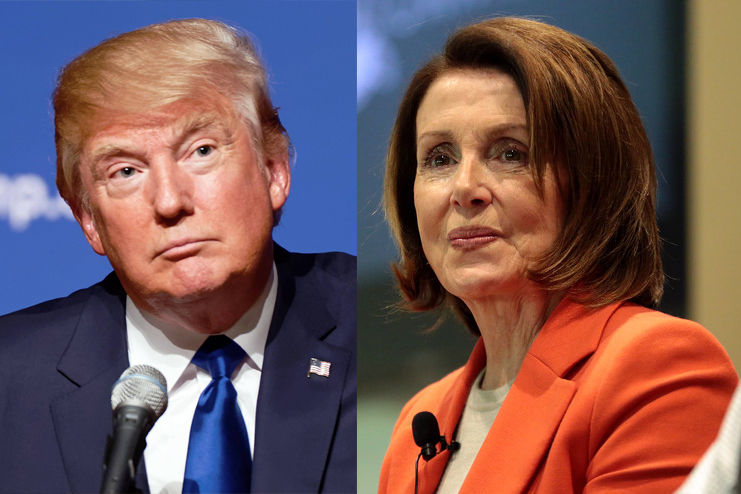Editorial: What should the State of the Union be about?
House Speaker Nancy Pelosi announced an official impeachment inquiry into President Donald Trump on Tuesday.
January 28, 2019
Despite President Donald Trump and Speaker Nancy Pelosi reaching a short-term agreement to end the 35-day government shutdown — the longest in American history — the bitter turmoil between the two elected officials will carry into the annual State of the Union.
Typically held in the House Chamber, the State of the Union is an opportunity for the president to address the United States, as well as a joint session of the United State Congress, at the beginning of each calendar year. The speech often includes an economic report and allows the president to discuss national priorities.
While Trump announced Friday that he would sign a temporary funding bill to reopen the government (which expires Feb. 21) Pelosi is standing strong in her stance to postpone the speech, citing security concerns.
“What I said to the president is when the government is opened we will discuss a mutually agreeable date,” Pelosi said.
Pelosi announced Monday that the State of the Union will be held on Feb. 5 at the Capitol.
So, on the Tuesday of what would have been Trump’s second State of the Union, what should the president see as a priority?
In 2018, Trump dedicated a large portion of his speech to a recently passed tax reform bill. He also focused on job growth and touted a 45-year low in unemployment, specifically in African American communities.
Immigration, as one might have guessed, was also a central to Trump’s State of the Union. In his speech, the president expressed interest in moving toward a merit-based visa system and ending “chain migration,” which prioritizes the immigration of families who are already stateside.
A year later, the state of the nation is similar. Yet, a lot has changed.
In October, the Intergovernmental Panel on Climate Change released a bombshell climate report that predicted a strong risk of environmental crisis by 2040.
This report came off the heels of a continued disinvestment in environmental change by the Trump administration, including billions of dollars spent to quench the California wildfires that ravaged the state throughout the summer and into the fall.
Additionally, there were 340 reported mass shootings in 2018 and 14,647 deaths due to gun violence at a national level.
Opioids continue to ravage the nation, becoming one of the biggest health epidemics facing the United States, with rates of opioid-linked fatal overdoses having nearly doubled in the past decade and topping 70,000 deaths in 2017.
Immigration is one of the top issues facing the United States, as the decision on how to manage the southern border has become a deeply divisive, partisan topic and a large component of the 35-day partial government shutdown.
There should be no debate that America needs real immigration reform. Over the summer, thousands of immigrants were detained after the Trump administration instituted a “zero-tolerance” policy with little to no action plan following the ruling.
He then turned his focus to border wall funding, something Trump campaigned on in full force while vying for the presidency.
Unless Trump has a real plan for immigration, one that meets the needs of both Republicans and Democrats, he should resist using the State of the Union as a platform to talk about this issue. He has proven consistently his inability to compromise, even when the lives of 800,000 Americans are negatively impacted.
So, on the night of what would have been Trump’s State of the Union, the ISD Editorial Board encourages you to write to your elected officials and make sure than in 2019 your representatives understand the real issues facing Americans — not those manufactured by cherry-picked crime statistics or incomplete truths.







